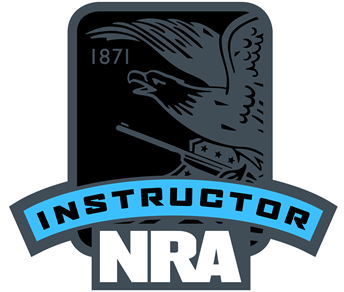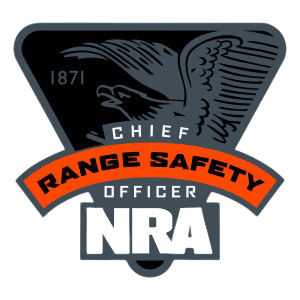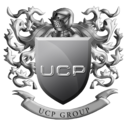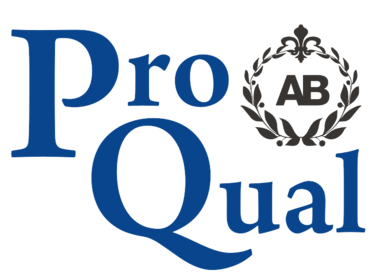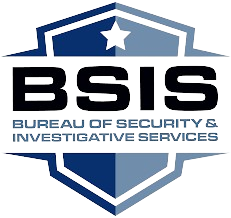ABA Level 4 Award in the Internal QA of Assessment Processes and Practice
Introduction
This suite of qualifications provides nationally recognised qualifications for candidates whose role involves assessing competence based units or qualifications:
• ABA Level 4 Award in the Internal Quality Assurance of Assessment Processes and Practices
• ABA Level 4 Certificate in the Internal Quality Assurance of Assessment Processes and Practices
The awarding organisation for these qualifications is ABA . This qualification is regulated by the Office of Qualifications and Examinations Regulation (Ofqual) and the Council for the Curriculum Examinations and Assessment (CCEA) Regulation. The Regulated Qualifications Framework (RQF) includes those qualifications regulated by Ofqual and CCEA Regulation.
These qualifications have been accredited onto the Regulated Qualifications Framework (RQF). Candidates who achieve the Level 4 Award may progress to the Level 4 Certificate or other discipline related qualifications, such as Management.
Entry Requirements
There are no formal entry requirements for this qualification but it is recommended that candidates hold an assessor qualification, such as:
• Level 3 Award in Assessing Competence in the Work Environment, or
• Level 3 Certificate in Assessing Vocational Achievement, or
• A1 Assess candidate performance using a range of methods, or
• D32 Assess candidate performance and D33 Assess candidate using different sources of evidence.
Centres should carry out an initial assessment of candidate skills and knowledge to identify any gaps and help plan the assessment.
Qualification Structure
Candidates must complete two Mandatory units.

Assessment
These qualifications are competence-based, candidates must demonstrate the level of competence described in the units. The qualifications must be assessed internally assessed by an appropriately experienced and qualified assessor.
Each candidate is required to produce a portfolio of evidence which demonstrates their achievement of all of the learning outcomes and assessment criteria for each unit.
Evidence can include:
– observation report by assessor
– assignments/projects/reports
– professional discussion
– witness testimony
– candidate product
– worksheets
– record of oral and written questioning
– Recognition of Prior Learning
Learning outcomes set out what a candidate is expected to know, understand or be able to do.
Assessment criteria specify the standard a candidate must meet to show the learning outcome has been achieved.
Learning Outcomes and Assessment Criteria
Unit T/601/5320
Understanding the principles and
practices of internally assessing the quality of assessment
Learning Outcome - The learner
will:
Assessment Criterion - The learner can:
1. Understand the context and principles of internal quality assurance
1.1 Explain the functions of internal quality assurance in learning and development
1.2 Explain the key concepts and principles of the internal quality assurance of assessment
1.3 Explain the roles of practitioners involved in the internal and external quality assurance process
1.4 Explain the regulations and requirements for internal quality assurance in own area of practice
2. Understand how to plan the internal quality assurance of assessment
2.1 Evaluate the importance of planning and preparing internal quality assurance activities
2.2 Explain what an internal quality assurance plan should contain
2.3 Summarise the preparations that need to be made for internal quality assurance, including:
• information collection
• communications
• administrative arrangements
• resources
3. Understand techniques and criteria for monitoring the quality of assessment internally
3.1 Evaluate different techniques for sampling evidence of assessment, including use of technology
3.2 Explain the appropriate criteria to use for judging the quality of the assessment process
4. Understand how to internally maintain and improve the quality of assessment
4.1 Summarise the types of feedback, support and advice that assessors may need to maintain and improve the quality of assessment
4.2 Explain standardisation requirements in relation to assessment
4.3 Explain relevant procedures regarding disputes about the quality of assessment
5. Understand how to manage information relevant to the internal quality assurance of assessment
5.1 Evaluate requirements for information management, data protection and confidentiality in relation to the internal quality assurance of assessment
6. Understand the legal and good practice requirements for the internal quality assurance of assessment
6.1 Evaluate legal issues, policies and procedures relevant to the internal quality assurance of assessment, including those for health, safety and welfare
6.2 Evaluate different ways in which technology can contribute to the internal quality assurance of assessment
6.3 Explain the value of reflective practice and continuing professional development in relation to internal
6.4 Evaluate requirements for equality and diversity and, where appropriate, bilingualism, in relation to the internal quality assurance of assessment
Unit A/601/5321
Internally assure the quality of assessment
Learning Outcome - The learner
will:
Assessment Criterion - The learner can:
1. Be able to plan the internal quality assurance of assessment
1.1 Plan monitoring activities according to the requirements of own role
1.2 Make arrangements for internal monitoring activities to assure quality
2. Be able to internally evaluate the quality of assessment
2.1 Carry out internal monitoring activities to quality requirements
2.2 Evaluate assessor expertise and competence in relation to the requirements of their role
2.3 Evaluate the planning and preparation of assessment processes
2.4 Determine whether assessment methods are safe, fair, valid and reliable
2.5 Determine whether assessment decisions are made using the specified criteria
2.6 Compare assessor decisions to ensure they are consistent
3. Be able to internally maintain and improve the quality of assessment
3.1 Provide assessors with feedback, advice and support, including professional development opportunities, which help them to maintain and improve the quality of assessment
3.2 Apply procedures to standardise assessment practices and outcomes
4. Be able to manage information relevant to the internal quality assurance of assessment
4.1 Apply procedures for recording, storing and reporting information relating to internal quality assurance
4.2 Follow procedures to maintain confidentiality of internal quality assurance information
5. Be able to maintain legal and good practice requirements when internally monitoring and maintaining the quality of assessment
5.1 Apply relevant policies, procedures and legislation in relation to internal quality assurance, including those for health, safety and welfare
5.2 Apply requirements for equality and diversity and, where appropriate, bilingualism, in relation to internal quality assurance
5.3 Critically reflect on own practice in internally assuring the quality of assessment
5.4 Maintain the currency of own expertise and competence in internally assuring the quality of assessment
Unit H/600/9674:
Plan, allocate and monitor work in own area of responsibility
The aim of this unit is to assess performance in leading the work of a team responsible for the internal quality assurance within an organisation or assessment centre.
Learning Outcome - The learner
will:
Assessment Criterion - The learner can:
1. Be able to produce a work plan for own area of responsibility
1.1 Explain the context in which work is to be undertaken
1.2 Identify the skills base and the resources available
1.3 Examine priorities and success criteria needed for the team
1.4 Produce a work plan for own area of responsibility
2. Be able to allocate and agree responsibilities with team members.
2.1 Identify team members’ responsibilities for identified work activities
2.2 Agree responsibilities and SMART (Specific, Measurable, Achievable, Realistic and Time-bound) objectives with team members.
3. Be able to monitor the progress and quality of work in own area of responsibility and provide feedback
3.1 Identify ways to monitor progress and quality of work
3.2 Monitor and evaluate progress against agreed standards and provide feedback to team members
4. Be able to review and amend plans of work for own area of responsibility and communicate changes
4.1 Review and amend work plan where changes are needed
4.2 Communicate changes to team members
Level
3
Total Qualification Time
120 hours
Course Location
Online
Assessment
Pass Or Fail Assessed And Verified By Centre Staff External Quality Assurance By ABA Verifiers Qualification



